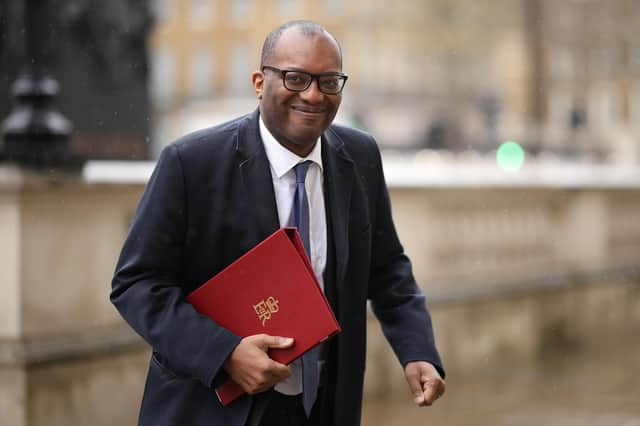Bankers' bonuses: Kwasi Kwarteng's plan to scrap cap raises more serious concerns than public jealousy – Scotsman comment


Or at least to consider doing so, with sources telling the Financial Times that Kwarteng is thinking about removing a cap on bankers’ bonuses to attract more talent to the UK’s financial sector.
Enabling wealthy people to become even wealthier will not look good in the eyes of many, particularly at a time when millions are struggling with the rising cost of living.
Advertisement
Hide AdAdvertisement
Hide AdHowever, given financial services contributed more than £173 billion to the British economy last year, this is the very definition of a serious business. The best-performing financiers are very rich, but they also make an awful lot of money for pension funds and UK plc in general. Looking for ways to attract more to live and work in this country is a good idea.
That said, there are significant concerns about Kwarteng’s plans.
The cap on bankers’ bonuses – at twice an employee's salary – was introduced to discourage excessive risk-taking that was a factor in the 2008 financial crash which caused so much misery for ordinary people in the UK and across the world.
It was the public that was forced to bail out the banks and austerity was the price we all paid. Furthermore, since then, two major crises – Covid and soaring energy prices – have forced the government to commit vast sums of public money to keep our economy afloat. So, with the national debt at historic levels, there is much less scope for a repeat of the bailouts of 2008.
Some banks do remain “too big to fail” but if we, the taxpayers, are required to step in to save them in an emergency, then that gives us the right to insist on measures to prevent things from getting out of hand in the first place.
Also, there is a risk that countries will engage in a race to the regulatory bottom, particularly when times are tough.
So, rather than fearing an upsurge of popular jealousy, the balance that Kwarteng must strike is between the benefits of enticing international high-flyers and the risk of a return to the financial Wild West.
Comments
Want to join the conversation? Please or to comment on this article.
